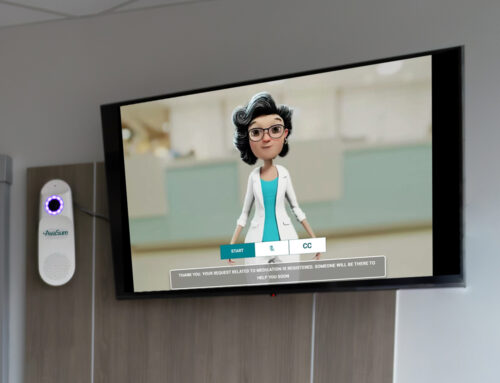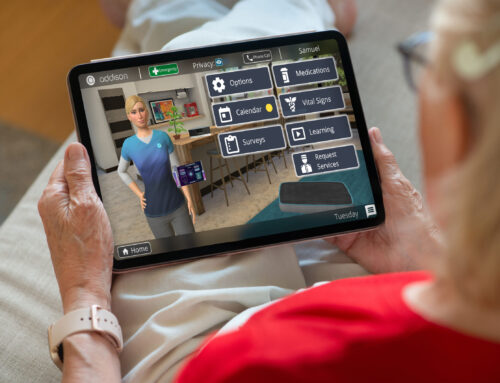Medtronic plc (NYSE:MDT), today announced it has received U.S. Food and Drug Administration (FDA) approval for new one-month of dual-antiplatelet therapy (DAPT) labeling with an expanded indication for high bleeding risk (HBR) patients implanted with the Resolute Onyx™ DES. The Resolute Onyx DES is the first-and-only DES in the U.S. that has been proven safe and effective utilizing a one-month regimen of DAPT – the combination of aspirin and an anti-clotting medication – following a percutaneous coronary intervention (PCI) in patients at high bleeding risk.
Patients that are at risk for high bleeding include older patients, those with history of bleeding, or those on oral blood-thinning drugs, and account for up to 40 percent of PCI patients1. Clinical studies have demonstrated that Resolute Onyx DES and its biocompatible polymer and stent design promote fast vessel healing and is well-suited for patients who may benefit from a DAPT duration as short as one month2.
“It is so rewarding to see the efforts of those involved in examining the safety and efficacy of one-month of DAPT following PCI – the coordinators, investigators and most importantly the Onyx One Clear patient participants – come to fruition with this new high bleeding risk indication for the Resolute Onyx drug eluting stent,” said Ajay Kirtane, M.D., professor of medicine at Columbia University Vagelos College of Physicians and Surgeons and principal investigator for the Onyx One Clear study. “It is remarkable how the combination of technology innovation, in conjunction with the generation of clinical evidence, has informed our understanding that shorter durations of DAPT may in fact be safe in appropriately selected patients treated with Resolute Onyx DES.”
Using a broad criteria for HBR, the approval is based on results from the Onyx ONE Clear Study that evaluated approximately 1500 complex HBR patients on one-month DAPT treated with Resolute Onyx. At one year, the study met its primary endpoint of cardiac death or myocardial infarction and showed Resolute Onyx to be safe and effective in HBR patients on one-month DAPT. Results from the study were shared virtually in March at the American College of Cardiology together with the World Congress of Cardiology Scientific Sessions (ACC.20/WCC). The Onyx ONE Clear study, coupled with the Onyx ONE Global study, make up the Onyx ONE Month DAPT Program that supports the advancement of DAPT evidence, initiated by physicians and Medtronic.
“The journey leading to an HBR indication has included years of rigorous clinical evaluation with more than 22,000 complex patients studied,” said Dave Moeller, vice president and general manager of the Coronary and Renal Denervation business, which is part of the Cardiac and Vascular Group at Medtronic. “We’re excited to realize our goal of providing physicians with more robust data and a supporting indication to inform treatment decisions for HBR patients, who may be suitable for a one-month course of DAPT.”
In May, the Resolute Onyx was the first DES to receive CE Mark for a one-month DAPT indication for patients at high bleeding risk in Europe.
In collaboration with leading clinicians, researchers, and scientists worldwide, Medtronic offers the broadest range of innovative medical technology for the interventional and surgical treatment of cardiovascular disease and cardiac arrhythmias. The company strives to offer products and services that deliver clinical and economic value to healthcare consumers and providers around the world.
About Medtronic
Medtronic plc (www.medtronic.com), headquartered in Dublin, Ireland, is among the world’s largest medical technology, services and solutions companies – alleviating pain, restoring health and extending life for millions of people around the world. Medtronic employs more than 90,000 people worldwide, serving physicians, hospitals and patients in more than 150 countries. The company is focused on collaborating with stakeholders around the world to take healthcare Further, Together.
Any forward-looking statements are subject to risks and uncertainties such as those described in Medtronic’s periodic reports on file with the Securities and Exchange Commission. Actual results may differ materially from anticipated results.
1 Windecker S, Latib A, Kedhi E, et al. Polymer-based or Polymer-free Stents in Patients at High Bleeding Risk. N Engl J Med. 2020; 382:1208-1218.doi: 10.1056/NEJMoa1910021.
2 Roleder T, Kedhi E, Berta B, et al. Short-term stent coverage of second-generation zotarolimus-eluting durable polymer stents: Onyx one-month optical coherence tomography study. Adv Interv Cardiol. 2019;15(2):14-150.












